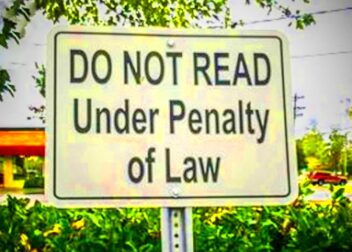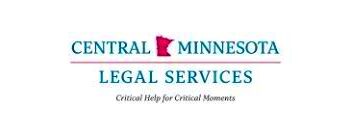Insights on Local Law 152 Inspections
Local Law 152 plays a role in New York City to safeguard the safety and reliability of buildings. For property owners grasping the nuances of this law and its inspection protocols can be quite challenging yet it is essential for upholding secure living spaces. I recall my initial experience with these rules for my own property; it felt like deciphering a complex web of technical language. However once I familiarized myself with the process I realized how crucial these inspections are, in averting significant problems.
What is Local Law 152?
In an effort to avert gas leaks and possible explosions that could lead to devastating outcomes New York City introduced Local Law 152 back in 2016. This legislation mandates inspections of gas piping systems in buildings across the city. Building owners are now required to have their gas lines examined every four years by a qualified expert. These inspections are comprehensive and aim to identify any signs of wear or potential risks.
The key points of Local Law 152 include:
- Scope: It covers all buildings with gas piping systems, whether residential or commercial.
- Frequency: Inspections must occur every four years.
- Compliance: Reports from these inspections must be submitted to the Department of Buildings.
Grasping these regulations is crucial to ensuring your property stays in line with the law and is secure. Staying updated on these rules is wise to steer clear of any possible fines or risks.
The Purpose of Local Law 152 Inspections
The main objective behind conducting Local Law 152 inspections is to improve safety by spotting and resolving problems within the gas system before they escalate. Gas leaks pose risks and can result in disastrous incidents such as explosions or fires. I remember a near miss involving a gas leak in a friends building that might have been prevented through a timely inspection. These occurrences underscore the importance of these inspections being viewed as a mere procedural requirement; they play a crucial role, in safeguarding lives.
The primary objectives of these inspections are as follows.
- Safety: To prevent gas leaks that could lead to dangerous explosions or fires.
- Compliance: Ensuring that building owners adhere to safety standards and legal requirements.
- Maintenance: Identifying and addressing issues in gas systems before they become major problems.
These checks play a role in keeping the surroundings safer for all and making sure that structures meet the required standards. Its a proactive step that ultimately protects lives and assets.
Key Requirements for Property Owners
As a landlord its crucial to grasp the essential aspects of Local Law 152 for both compliance and safety. Initially when I came across these regulations it felt like I was juggling several responsibilities simultaneously. From finding an inspector to making sure reports are submitted on time it all seemed quite daunting. Nevertheless once you become familiar with these requirements the process becomes more manageable.
The key obligations that property owners must adhere to include.
- Hire a Licensed Inspector: Inspections must be conducted by a licensed master plumber or gas technician. This ensures that the inspection is thorough and meets all legal standards.
- Schedule Regular Inspections: Each building’s gas piping system must be inspected every four years. Missing this deadline can result in significant penalties.
- Submit Inspection Reports: After the inspection, you must submit the report to the New York City Department of Buildings (DOB). This report includes findings and any necessary follow-up actions.
- Address Issues Promptly: If the inspection reveals any issues, they must be addressed immediately to prevent any safety hazards. The report will often include recommendations for repairs or upgrades.
Following these guidelines not helps you stay on the right side of the law but also prioritizes the safety and welfare of everyone using the property. Keep in mind that being proactive is the key to preventing any future issues.
How Inspections are Conducted
Grasping the ins and outs of Local Law 152 inspections can really help streamline the whole experience and make it less intimidating. I distinctly recall feeling a bit on edge before my initial inspection but witnessing the systematic and professional approach used during the process quickly put my mind at ease.
Here’s a breakdown of how these inspections usually go down step by step
- Initial Assessment: The inspector begins by assessing the general condition of the gas piping system. This includes checking the system’s accessibility and overall setup.
- Detailed Inspection: The inspector examines the gas pipes for signs of wear, corrosion, or damage. They also check for leaks using specialized equipment.
- Testing: In many cases, the inspector will perform pressure tests to ensure the integrity of the gas system. This step is crucial for identifying potential leaks that might not be visible.
- Documentation: The findings from the inspection are documented in a detailed report. This report will highlight any issues found and recommend necessary repairs or actions.
- Follow-Up: If any issues are identified, property owners are required to address them promptly. A follow-up inspection may be necessary to confirm that all problems have been resolved.
Grasping this procedure well can assist you in getting your property ready and making sure everything meets the standards. It also helps make the inspection process feel less daunting.
Common Issues Found During Inspections
When it comes to Local Law 152 inspections there are a few problems that can pop up. I remember a friends building where some minor issues were flagged during the inspection—nothing major but still worth addressing. Being aware of what inspectors usually check for can help you tackle potential issues before they escalate.
Common problems identified during inspections are
- Corrosion: Over time, gas pipes can corrode due to environmental factors or age. Corrosion weakens the pipes and can lead to leaks.
- Leaky Joints: Connections between pipes can develop leaks if not properly sealed. This is a common issue and is often detected during pressure testing.
- Improperly Supported Pipes: Gas pipes need to be properly supported to prevent sagging or movement. Unsupported pipes can cause damage over time.
- Damaged or Missing Insulation: Insulation around gas pipes helps maintain temperature and prevent condensation. Damaged or missing insulation can lead to problems.
- Unauthorized Modifications: Any alterations made to the gas system without proper permits can be flagged during inspections.
By being mindful of these challenges you can take better care of your property and streamline the inspection process. Keeping up with maintenance and addressing concerns promptly can help avoid significant issues down the line.
Penalties for Non-Compliance
Dealing with the consequences of not adhering to Local Law 152 can be really overwhelming. I remember a time when a friend of mine overlooked their inspection deadline and ended up with a fine. It serves as a wake up call about the importance of staying updated on these regulations. Knowing about the penalties can assist you in steering clear of these expenses and maintaining your property’s good standing.
- Fines: If you fail to schedule or complete an inspection on time, you could face significant fines. These fines can accumulate daily until you comply with the inspection requirements.
- Stop Work Orders: In cases where gas system issues pose immediate risks, the Department of Buildings may issue a stop work order. This can halt any ongoing work and create delays.
- Legal Action: Persistent non-compliance can lead to legal action, including court appearances. This can be both stressful and expensive.
- Increased Inspection Frequency: If issues are found during inspections, you may be required to undergo more frequent inspections until the problems are resolved.
To steer clear of these consequences make sure to conduct inspections on time and swiftly resolve any problems that arise. Being proactive not helps you sidestep penalties but also upholds the security and soundness of your structure.
How to Prepare for a Local Law 152 Inspection
Getting ready for a Local Law 152 inspection might appear to be a challenge, but with some organization it can be pretty straightforward. I recall my initial experience in preparing for an inspection; it seemed intimidating at first but a few important actions made the process much easier. Here’s a guide to help you be well prepared.
Follow these steps to prepare:
- Schedule the Inspection Early: Book your inspection well before the due date. This gives you ample time to address any potential issues and avoids last-minute rush.
- Ensure Access: Make sure the inspector has easy access to all areas of the gas piping system. Clear any obstacles that might obstruct their work.
- Review Previous Reports: Look over any past inspection reports to understand previous issues and ensure they’ve been addressed.
- Conduct a Preliminary Check: Before the official inspection, do a basic check of the gas system for visible problems like leaks or corrosion.
- Document Repairs: If any repairs or maintenance have been done, have documentation ready. This can help demonstrate compliance and any improvements made.
Getting ready well in advance can help streamline the inspection process and make it more effective. Its all about taking steps ahead of time to make sure everything is in shape before the inspector shows up.
FAQ about Local Law 152 Inspections
Grasping the ins and outs of Local Law 152 inspections can be challenging. So it’s beneficial to have responses ready for frequently asked questions. When I came across these rules for the time I had a lot of queries. Here’s a useful FAQ section to shed light on some of the questions.
- What is Local Law 152? Local Law 152 mandates that all gas piping systems in buildings be inspected every four years to ensure safety and compliance.
- Who can perform the inspection? Only a licensed master plumber or gas technician can conduct the inspection to ensure it meets all legal and safety standards.
- What happens if I miss the inspection deadline? Missing the deadline can result in fines, legal action, and increased inspection frequency until compliance is achieved.
- How do I find a licensed inspector? You can find licensed inspectors through the Department of Buildings or by seeking recommendations from trusted professionals in the field.
- What should I do if issues are found during the inspection? Address any issues identified as soon as possible. Ensure repairs are completed and documented, and if necessary, schedule a follow-up inspection.
By having responses to these inquiries you can clarify the procedure and simplify the management of your properties adherence to Local Law 152.
Conclusion on Local Law 152 Inspections
Inspections mandated by Law 152 are essential for upholding the security and structural soundness of New York Citys buildings. Drawing from my personal encounters with these regulations I can confirm that although the procedure may appear intricate the advantages significantly outweigh the challenges. Routine inspections not assist in steering clear of substantial penalties and legal issues but most crucially they safeguard the functionality of gas systems protecting both lives and assets.
To ensure compliance with Local Law 152 it’s crucial to be proactive and well informed. This means grasping the key requirements and adequately preparing for the inspection. While the process does involve a bit of paperwork and preparation it’s quite simple when you break it down into manageable steps. By keeping up with these obligations you play a role in creating a community and protecting your property from potential risks.
Essentially dedicating effort to grasp and adhere to Local Law 152 inspections is like making a deposit for the enduring safety and welfare of your property and those residing in it. When approached with care it’s a duty that brings reassurance and helps avoid larger problems in the future.


